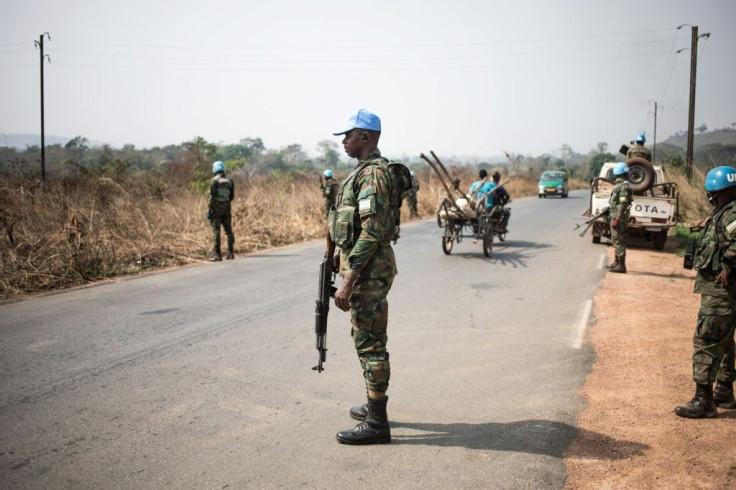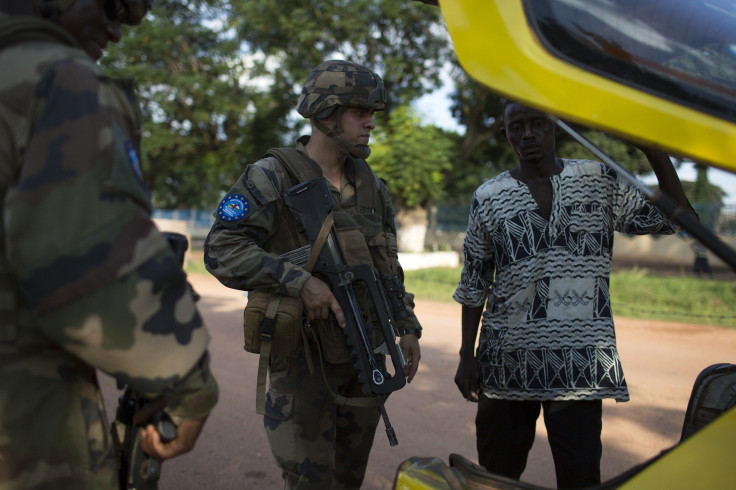Aid Convoy Reaches C. Africa Capital After 50-day Blockade
An aid convoy on Monday reached Bangui, the capital of the Central African Republic, after a 50-day blockade by rebels who had cut off the city's lifeline, the UN said.
"Fourteen trucks, nine of them from the UN's World Food Programme" arrived, said Lieutenant Colonel Abdoulaziz Fall, spokesman for the MINUSCA peacekeeping mission.
Armed groups launched an offensive on the capital on December 19, cutting off a key highway that left more than 1,500 trucks stranded on the border with neighbouring Cameroon.
One of the world's poorest countries, the CAR has been locked in violence since 2013, when its then president, Francois Bozize, was overthrown.
The resulting war divided the country largely along religious and ethnic lines, causing thousands of deaths and prompting around a quarter of the population to flee their homes.

Militia groups which emerged during the conflict today control around two-thirds of the country, and President Faustin Archange Touadera depends heavily on UN forces, as well as military personnel sent by Russia and Rwanda.
Anti-Touadera groups came together in an alliance in the runup to presidential and legislative elections on December 27.
Their advance on Bangui was halted but they retained a chokehold on the key highway to Bangui, preventing trucks from bringing food and other supplies.
The road is essential for nearly all of CAR's imports, and the price of some basic commodities rose by at least 50 percent in some places.
"The first trucks from Cameroon arrived in Bangui under MINUSCA escort," said Fall, who speaks for MINUSCA's military operations.
In addition to the nine food trucks, "the others are trucks containing equipment for MINUSCA," he said.

Touadera last month was proclaimed victor after gaining 53.16 percent of the vote in the first round, an overall majority that obviated the need for a runoff.
But the country's political opposition dismissed his win as a sham -- turnout was just 35.25 percent of the electorate.
Hundreds of thousands of voters were unable to cast their ballot, especially in areas controlled by militia groups.
The rebels have not succeeded in approaching Bangui apart from two attacks on the edge of the capital on January 13 that were beaten back.
They have run up against better equipped forces from MINUSCA, who number some 12,000, as well as the hundreds of Rwandan soldiers and Russian paramilitaries deployed in late December to shore up Touadera and the country's depleted military.
Rebels have attacked and sometimes taken control of cities often far from the capital, in particular along the road leading from Bangui to Garoua-Boulai, the main Cameroonian border post.
According to the UN, they have attempted to "suffocate" the capital by carrying out attacks along the roadway.
In recent days, Bangui and MINUSCA have announced that they have taken back several towns from the rebels, most recently Bossemptele northwest of the capital and on the route to Garoua-Boulai.
The UN's Office for the Coordination of Humanitarian Affairs says some 57 percent of the country's population of around 4.9 million will require assistance and protection this year.
© Copyright AFP {{Year}}. All rights reserved.





















